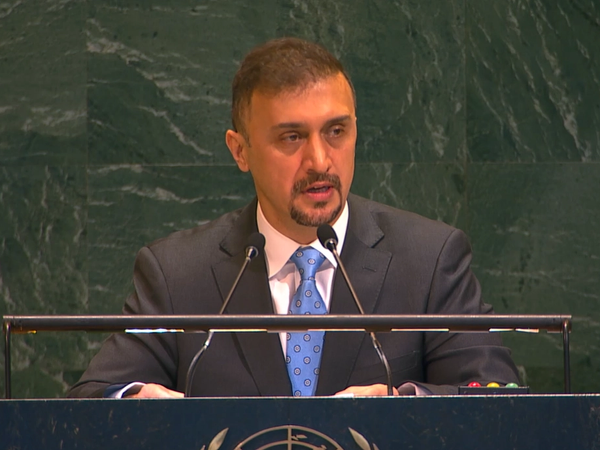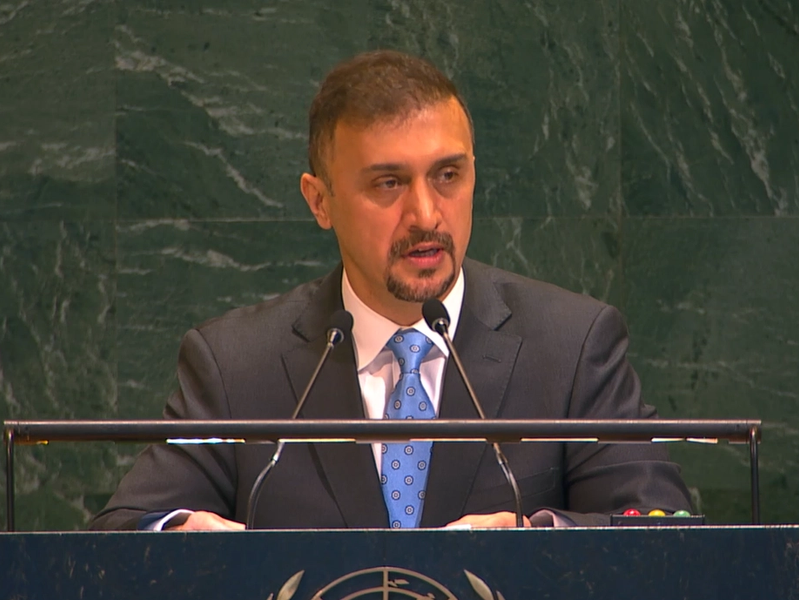Afghanistan’s representative to the United Nations has called for the establishment of a formal mechanism to hold the Taliban accountable for widespread human rights violations and governance failures since seizing power in 2021.
Speaking during a UN General Assembly session on Afghanistan, Naseer Ahmad Faiq said the country has reached a critical crossroads under Taliban rule, experiencing severe setbacks across all sectors of society.
Faiq urged an end to gender discrimination and called for international efforts to establish accountability measures targeting the Taliban regime. He emphasised that Afghanistan needs a responsible, inclusive government that reflects the aspirations of all its people, including women and girls.
“The Taliban do not represent the people of Afghanistan in any way,” he said, adding that the group continues to reject the legitimate demands of Afghan citizens.
Faiq appealed to the UN Secretary-General to appoint a special representative for Afghanistan to help facilitate dialogue among all political and civil stakeholders in the country.
He also highlighted what he described as the institutionalisation of discrimination under Taliban rule, citing morality laws, the ban on girls’ education, the closure of universities, and the prohibition of women working in NGOs as evidence of systematic repression.
In addition, Faiq addressed the forced deportation of Afghan migrants from neighbouring countries, calling on Iran and Pakistan to take the issue seriously and respect migrants’ rights.
He warned that extremist groups such as ISIS and al-Qaeda continue to pose direct threats to regional and global security. The rise of jihadist schools, he said, is fuelling radicalisation and must be addressed to prevent Afghanistan from once again becoming a safe haven for terrorism.

